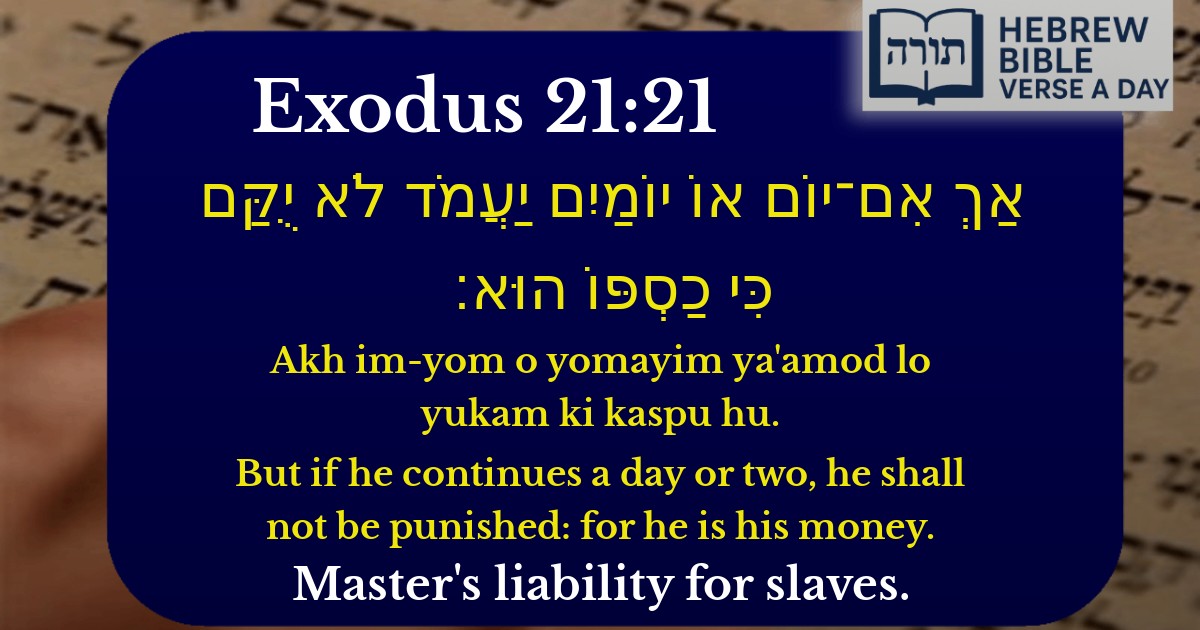Join Our Newsletter To Be Informed When New Videos Are Posted
Join the thousands of fellow Studends who rely on our videos to learn how to read the bible in Hebrew for free!
Hebrew Text
אַךְ אִם־יוֹם אוֹ יוֹמַיִם יַעֲמֹד לֹא יֻקַּם כִּי כַסְפּוֹ הוּא׃
English Translation
But if he continues a day or two, he shall not be punished: for he is his money.
Transliteration
Akh im-yom o yomayim ya'amod lo yukam ki kaspu hu.
Hebrew Leining Text
אַ֥ךְ אִם־י֛וֹם א֥וֹ יוֹמַ֖יִם יַעֲמֹ֑ד לֹ֣א יֻקַּ֔ם כִּ֥י כַסְפּ֖וֹ הֽוּא׃ {ס}
Parasha Commentary
📚 Talmud Citations
This verse is not quoted in the Talmud.


Context of the Verse
The verse (Exodus 21:21) appears in the context of the laws concerning a Hebrew slave who is struck by his master. The Torah outlines the consequences for a master who causes fatal injury to his slave, but this verse provides an exception if the slave survives for a day or two after the injury.
Literal Interpretation (Peshat)
Rashi explains that if the slave dies immediately from the blow, the master is subject to capital punishment (as per the previous verse). However, if the slave survives for a full day or two ("yom o yomayim") and then dies, the master is exempt from capital punishment because the slave is considered "kaspó hu"—his property. This implies financial compensation may apply instead.
Legal Implications (Halachah)
Rambam (Hilchot Rotzeach 2:12-14) derives from this verse that a master who kills his slave intentionally is liable for capital punishment, but if the death occurs after a delay (a day or two), it is treated as accidental, and the master is exempt from execution. The Talmud (Sanhedrin 52b) discusses this principle, noting that the delay indicates the injury may not have been the direct cause of death.
Moral and Ethical Lessons (Derash)
Grammatical Nuances
The term "yom o yomayim" (a day or two) is understood by some commentators (e.g., Rashbam) as idiomatic, meaning any short but significant period of time, not strictly 24 or 48 hours. This aligns with the legal principle that delayed consequences imply diminished direct responsibility.